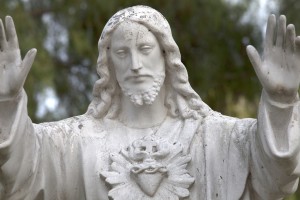
Faith is a big deal in the United States. It permeates the news, politics, and healthcare. Pew Research Center recently released a survey about which states are more religious. It shouldn’t be surprising that the states which consider themselves to be highly religious are located in the south: Alabama, Mississippi, Tennessee, Louisiana, and Arkansas took the top five spots. At the bottom of the rankings were: New Hampshire, Massachusetts, Vermont, Maine, and Connecticut. Let’s take a look at the data more closely.
Measuring Religiosity
In the Pew Research survey, participants were asked four questions:
- How important is religion to your life?
- Do you attend worship services weekly?
- Do you pray daily?
- Do you believe in God with absolute certainty?
These questions were rated individually, then measured together to give the state an overall index.
In Alabama, the most religious state based on the overall index, 77 percent of the participants indicated that religion was very important to them, but only 51 percent stated they attended worship services on a weekly basis. New Hampshire, in a tie with Massachusetts for the least religious state, reported that only 33 percent of the participants found religion important to their life. Only 22 percent attend worship services each week, and 43 percent say they believe in God.
Where Are the Atheists?
In another survey released at in early February, the Public Religion Research Institute’s American Values Atlas found that the Pacific Northwest was the region with the most “religiously unaffiliated residents.” Three major metropolitan areas in the region, Portland, Oregon, San Francisco, and Seattle all had 37 percent of the respondents answer that they were in the “none” category. Las Vegas and Denver were also in the top five. The cities with the fewest people that do have a religious affiliation were: Charlotte, North Carolina; Dallas, Texas; Milwaukee, Wisconsin; Houston, Texas; and Kansas City.
Interestingly, being religiously unaffiliated does not necessarily mean atheist or agnostic. Many of the nones are Christians who have left organized religion. As the group gains a hold in the political climate, maybe more researchers will break down the participants into different sections, giving atheists a true voice.
Moving Into the Presidential Race
Religion is becoming an important factor in the 2016 campaign. The Pew Research Center has found that many Americans still want a candidate with faith, on either party. It does tend to be more important to Republicans, almost 66 percent of the party feel religion is vital to a candidate. In the Democratic Party, only about 53 percent of them feel the same way. As all the races heat up for November, it remains to be seen how religion will play out in the primaries and the nominations. It’s something that many organizations are watching.
The religiously unaffiliated have seen tremendous growth over the years. When President Bill Clinton was elected in 1993, only about nine percent of the population identified as none. Today, that figure is almost 25 percent. The voting power of nones could change the election.
Although the separation of church and state is considered a basic right, when it comes to the presidency, the reality is much different. Most Americans believe that the two are intertwined for the leader of the nation. Whoever is elected in 2016 to serve for the next four years should take heart of President Obama’s words when he spoke at the Democratic National Committee LGBT Gala:
“We affirm that we cherish our religious freedom and are profoundly respectful of religious traditions, but we also have to say clearly that our religious freedom doesn’t grant us the freedom to deny our fellow Americans their constitutional rights.”

